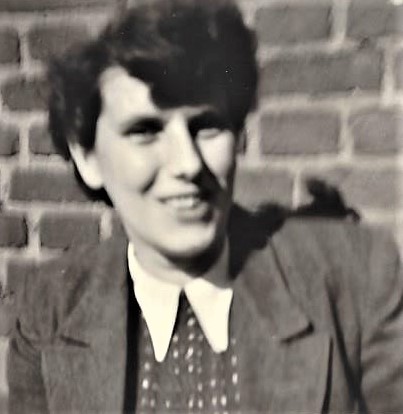A long path to compensation
Waltraud Blass (1920-2009) grew up in a home that was strongly influenced by her parents' membership in the Communist Party of Germany (KPD). She was also a member of a communist children's and youth group.
In 1943, Blass worked in a cable factory in the Ruhr area. She provided Soviet forced labourers with clothing and food, which led to her arrest on 23 March 1943 and deportation to the Ravensbrück women’s concentration camp in November. She was first assigned to hard labour and was not given sufficient food. Later, the SS had her take an aptitude test for the Siemens company in the Ravensbrück concentration camp. She was selected to serve there as a forced labourer. From then on, Blass had to work day and night shifts winding rolls of copper wire and in constant fear of being ״shut down”. She was released from prison in 1944.
After the war, in accordance with German Federal Compensation Act Waltraud Blass received five German marks (DM) for each day she had spent in a concentration camp, but nothing for the forced labour she had done. She consequently sued Siemens in 1990, demanding 24,000 DM for the forced labour. Her claim was dismissed on the basis of the statute of limitations. Later, she did receive compensation as part of the forced labour compensation agreements of the 2000s.

